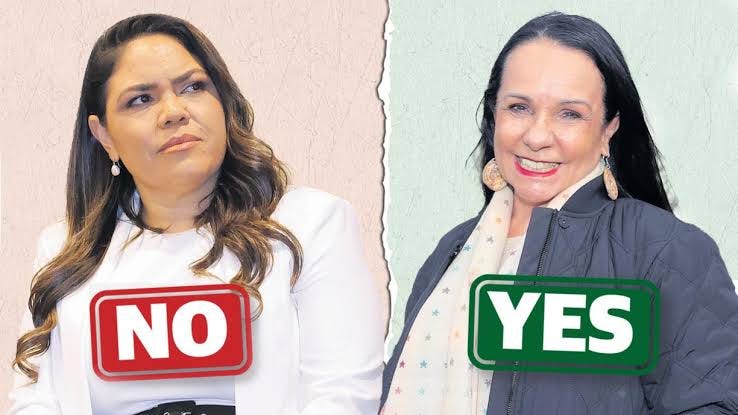Its often not hard to gauge the mood of Australians on most matters, where issues of importance are concerned.
Australians aren’t backwards in coming forwards to express their views.
Its that freedom of expression and the ability to do so without reprisal that makes Australia a place of endearment.
However, the subject of the Voice to Parliament as contentious as it is, seems for many Australians to have created an unfamiliar air of anxiety - reservation to articulate a position on a matter that has many unsure to speak out in fear of being defined.
The debate surrounding the proposal for an Indigenous Voice to Parliament is a subject of contentious national discourse.
The matter isn’t just another political talking point; it delves deep into the core of Australia's history, reconciliation efforts, and its multi-faceted social fabric.
And while its supporters view the Voice to Parliament as a significant step toward Indigenous representation, opponents argue for a variety of reasons that don't necessarily stem from racism.
But the way the debate is being framed is doing just that - its creating division and fear and a George W Bushism of - “Either you’re with us or against us.”
A position untenable in a free thinking democratic society lime Australia.
What’s important to recognise is that opposition to a policy does not automatically equate to opposition against a group of people.
Those who oppose the Voice to Parliament and critics of it, come from various ideological backgrounds and have different concerns—many unrelated to racial discrimination.
A concern for some is by establishing a constitutionally-an enshrined Indigenous Voice could potentially fragment the nation’s democratic representation.
Others argue the move could set a precedent that might encourage other marginalized groups to demand similar special representation, thereby undermining the concept of a united citizenry.
Another argument against the proposal centres on its efficacy.
The Voice to Parliament’s critics question whether it would genuinely empower Indigenous communities or simply become another layer of bureaucracy.
There’s a call for more localised solutions that directly engage with communities rather than a centralised body that might lack the nuances required to address different Indigenous peoples and cultures.
Furthermore, the issue of financial considerations also come into play, with some people pointing out the cost of implementing and maintaining such a body could be prohibitively high.
The suggestion for some is that these resources might be better spent on direct interventions in areas like health, education, and housing, where the impact could be more immediate and tangible.
There’s also the suggestion there are alternative ways to ensure Indigenous voices are heard without constitutional change.
Like strengthening existing advisory bodies, engaging in comprehensive consultations, or implementing local governance structures that are better placed to understand the unique challenges and aspirations of Indigenous Australians.
The contentious nature of the debate has oled to an atmosphere where opposing views are sometimes quickly labeled as racist.
Expressing a concern and only to be accused of being a racist can stifle honest discussion and make it difficult for people to express legitimate concerns without fear of social backlash.
What does become important to acknowledge is that the path to reconciliation and improved Indigenous representation is complex.
A 'one-size-fits-all' approach may not address the myriad issues at hand, and it’s possible to respect and aim to empower Indigenous communities while still questioning the effectiveness of specific policies designed to achieve these aims.
Rather than painting opposition to the Voice to Parliament as intrinsically racist, the debate could benefit from a more nuanced discussion that takes into account the complexity of the issue and the variety of perspectives.
Acknowledging valid concerns from all sides would result in a more robust, effective, and inclusive strategy for Indigenous representation and reconciliation.
What the Voice to Parliament aims to address is the historical inequities and ensure Indigenous representation.
Opposing it should doesn’t automatically define a person as racist.
However, that’s what has been happening and that’s the fear of interpretation and how people are being labelled.
Critics raise various concerns, including the proposal's impact on constitutional integrity, its practicality and effectiveness, and fiscal considerations.
Creating a more inclusive society that respects and represents all its citizens is an aspiration that transcends political affiliations and ethnic backgrounds.
To achieve it, it’s crucial room is allowed for dissenting and diverse opinions and reasoned debate, free from the cloud of summary judgments and accusations.
By doing that, many Australians are more likely to arrive at solutions that stand the test of time and genuinely benefit all Australians, Indigenous and non-Indigenous alike and allow that Australian voice of expression to return again.





Great article George. We also have to ask ourselves what a democracy is and are we actually a democracy? is it about the majority or the minority? "In a Democracy, Majority rule is the principle that the group that has the most supporters gets its way." In an enlightened society, the majority would also then ensure that the minority is also catered for. If the majority of the Minority is also against the "Voice" which makes up 3.8% of the Australian population, then what the hell are we doing? This is a political play and not a good one.